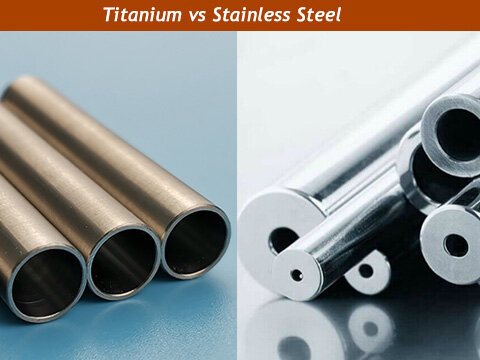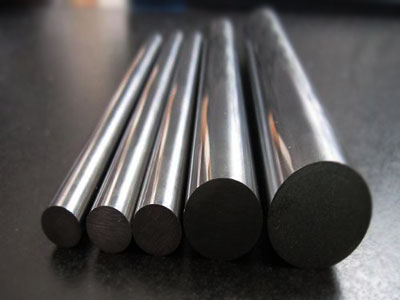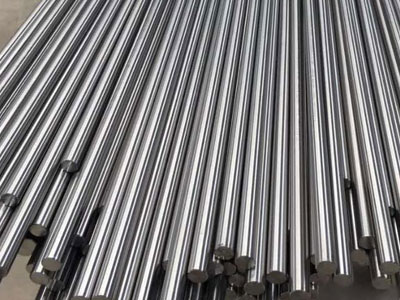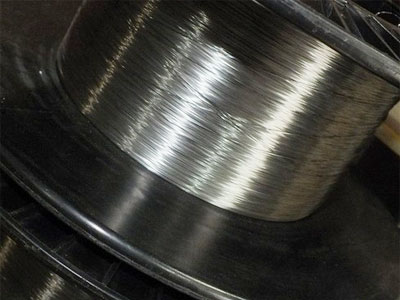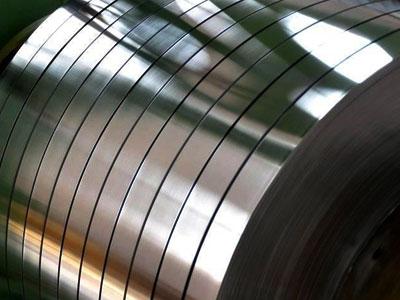Titanium and stainless steel are two metals that people often talk about. They have some things in common, but they also have differences that make them unique. This blog post will explain the differences between titanium and stainless steel. We will talk about their physical properties, how strong they are, and what they are used for. By the end, you will understand these materials clearly!
What is Titanium? The Lightweight Powerhouse
Titanium is a shiny, silver-colored transition metal with unique properties. It's lightweight, yet incredibly strong. In fact, it's 30% stronger than steel, but almost 43% lighter. Compared to aluminum, it's heavier, but twice as strong.
Titanium is special because it's really strong but not heavy. It's as strong as stainless steel, but it only weighs 40% as much. This makes it an excellent choice for important things like planes, car engines, fancy boat stuff, medical things, and big machines.
Not only is titanium strong and lightweight, but it's also non-toxic and biocompatible. That's why it's widely used in the medical industry. Titanium alloys have excellent mechanical properties, that make them super useful in many industries like aerospace, military, automotive, sporting goods, and medical applications.
In summary, titanium is an exceptional metal that combines strength, lightness, and biocompatibility. Its versatility and reliability make it an ideal choice for a wide range of industries.
Physical Properties of Titanium
Titanium is an awesome metal with some cool features. It's super shiny and looks really nice because it's silvery-white. Even though it's shiny, it's actually really light because it has a low density. This means it's one of the lightest metals out there. That's why it's used for lots of different things where weight is important.
Titanium can handle heat really well too. It doesn't melt until it gets to a really high temperature of about 1,660 °C. That's pretty impressive! And even though it's light, it still has a density of 4.5 g/cm3, which means it's not too heavy but still has some substance. So, in summary, titanium is a special material that's used in all kinds of industries because it's shiny, lightweight, and can handle heat.
Applications of Titanium
Titanium is a versatile material used in many different ways. It is strong and resistant to rust, making it great for a variety of things. Here are some important ways titanium is used:
1. Aerospace Industry:
Titanium is lightweight but strong, making it great for airplanes, spacecraft, and satellites in space.
2. Medical Field:
Titanium is safe for the human body and doesn't rust. It's used for implants like joints, dental implants, pacemakers, and surgical tools.
3. Chemical and Marine Industries:
Titanium doesn't rust easily, so it's useful in factories that make chemicals and in places with water like boats and desalination plants.
4. Sports Equipment:
Titanium is strong and light, perfect for making sports gear like bike frames, golf clubs, and tennis rackets.
5. Architecture and Design:
Titanium is pretty and can handle different weather conditions, so it's used in buildings for things like roofs and walls.
In summary, titanium is an amazing material that is used in many important industries like aerospace, medicine, chemistry, sports, and architecture.
What is Stainless Steel? The Accessible All-Rounder
Stainless steel is a type of metal that is widely available and affordable. It is often used as an alternative to titanium. Stainless steel has really good mechanical properties, which means it is strong and durable. It can also be easily customized, so it can be used in many different industries.
One of the best things about stainless steel is that it can be recycled. This is really important because we need to take care of our environment. Stainless steel has a thin film on its surface that protects it from getting rusty, so it lasts a long time.
Even though stainless steel is not as strong as titanium, it is still used in many important industries. Some of these include architecture, paper and pulp, chemicals, food and beverages, energy production, making guns, cars, medicine, and even 3D printing.
Physical Properties of Stainless Steel
Stainless steel is incredibly strong and does not easily break. It is very durable and can handle a lot of pressure without bending or breaking. Even though it is a little heavier than titanium, it is still a great choice for many things because of its strength. It lasts a long time and is very reliable, which is why it is often used in construction, cars, and airplanes.
Applications of Stainless Steel
Stainless steel is an incredibly strong and tough material that is used in various industries. Let's explore some key areas where stainless steel excels:
-
Construction:Stainless steel is widely used in construction because it can withstand tough conditions and lasts a long time.
-
Automotive: Cars, trucks, and motorcycles use stainless steel parts because they don't rust easily and are reliable.
-
Medical: Doctors and surgeons rely on stainless steel for surgical tools, implants, and medical equipment because it is safe for the body and doesn't attract bacteria.
-
Food and Beverage: Stainless steel is the top choice for food processing equipment and storage tanks because it is easy to keep clean and doesn't corrode.
-
Aerospace: Stainless steel is used in aircraft parts like exhaust systems because it is strong and can handle high temperatures.
Overall, stainless steel is a great choice for many demanding applications because it is tough, resistant to corrosion, and can be used in many different ways.
Titanium vs. Stainless Steel: The Battle of Strength
Titanium and stainless steel are both strong materials, but they have different types of strength. Stainless steel can handle more force without breaking, which makes it great for being really strong.
On the other hand, titanium is also strong like steel, but it's much lighter. This makes it perfect for things that need to be light, like airplanes or sports equipment. So, stainless steel is good for just being really strong, while titanium is strong and light, which makes it useful for many different things.
Titanium vs. Steel: Corrosion Resistance and Fatigue Strength
When it comes to protecting against corrosion, titanium is the top choice, especially in harsh environments. That's why it's commonly used in marine and chemical applications. On the other hand, steel, although resistant to corrosion, can still rust under specific conditions.
In terms of fatigue strength, which refers to the ability of a material to withstand repeated loads without breaking, titanium once again outshines steel. While steel is strong, it is more prone to fatigue cracking over time.
In summary, if you're looking for superior corrosion resistance and fatigue strength, titanium is the grade 10 material you need. It keeps your applications free from corrosion and ensures long-lasting performance.
Biocompatibility:
Titanium is highly biocompatible, which means it works well with the human body. That's why it's often used for medical implants. On the other hand, steel is not as biocompatible and can cause problems with our tissues. That's why it's not used as much in medical applications.
Cost and Availability:
Steel is easier to find and cheaper than titanium, so it's a popular choice in many industries. However, when choosing between titanium and steel, it's important to think about other factors too. Consider things like strength, weight, resistance to rust, and how easy it is to shape and work with.
Choosing Between Titanium and Stainless Steel
When comparing titanium and stainless steel, the decision depends on your specific needs. If you want a lightweight and highly durable metal, and the cost is not a major concern, titanium is the best choice. On the other hand, if you need a more affordable and customizable metal that is still impressively strong, stainless steel is the way to go.
Remember, it's not about which metal is universally better, but which one is better for your specific application. By understanding the properties and advantages of both titanium and stainless steel, you can make an informed decision that suits your project.
In summary, consider your requirements and budget to choose between titanium and stainless steel.
Conclusion:
In the titanium vs. stainless steel debate, it's important to think about each material's special qualities and how they relate to what you need. Titanium is super strong but lightweight and doesn't rust, which makes it great for things like planes and medical stuff.
On the other hand, stainless steel is tough and not too expensive. That's why it's commonly used in buildings and kitchen tools. By knowing the good and not-so-good things about both titanium and stainless steel, you can make a smart choice for your project. Take your time, think about what you need, and pick the material that's right for you.

